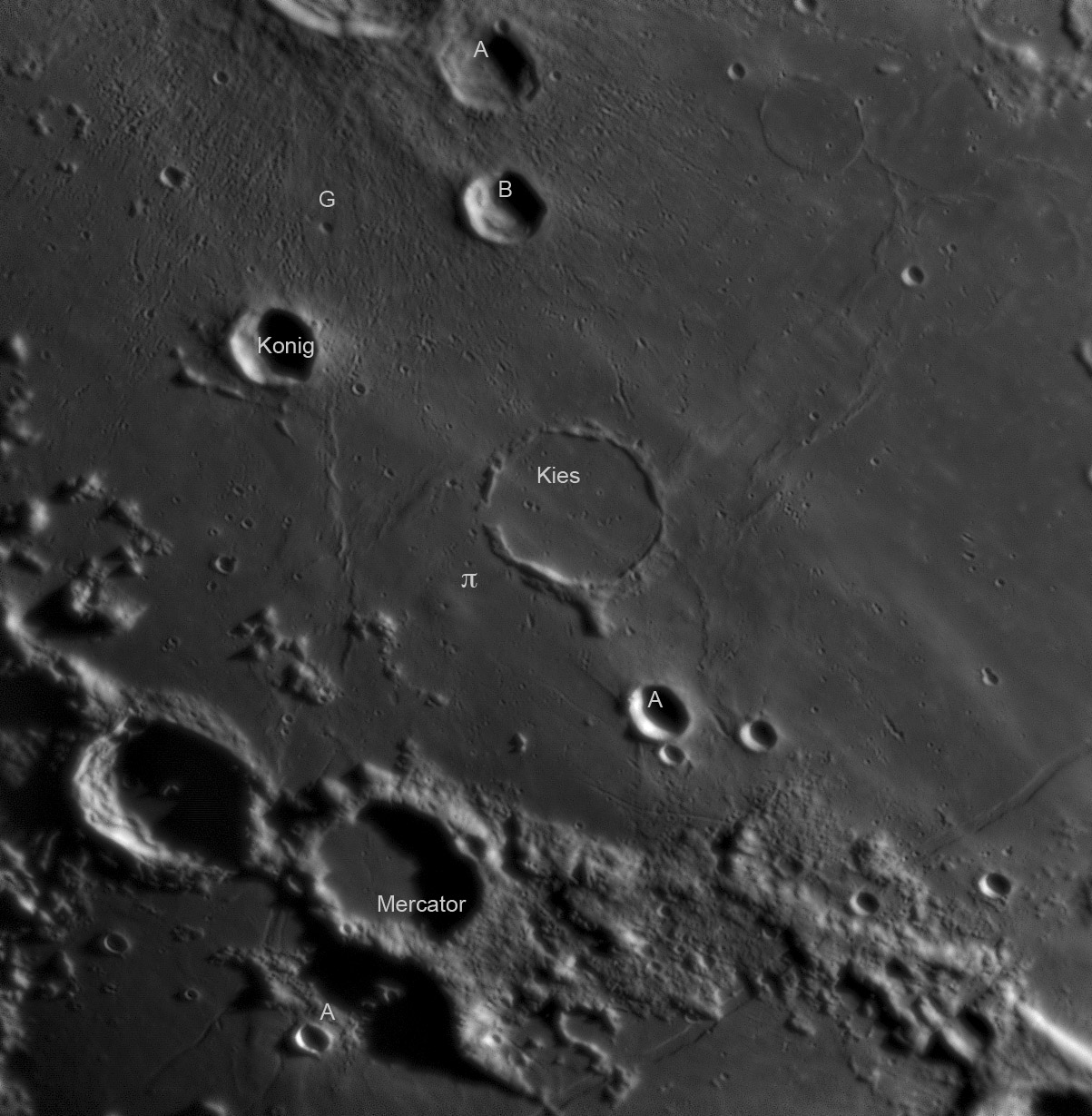Difference between revisions of "January 29, 2013"
| Line 23: | Line 23: | ||
<br /> | <br /> | ||
<strong>Related Links</strong><br /> | <strong>Related Links</strong><br /> | ||
| − | Rükl plate [ | + | Rükl plate [https://the-moon.us/wiki/R%C3%BCkl+53 53]<br /> |
<em>[http://lpod.wikispaces.com/21st+Century+Atlas+of+the+Moon 21st Century Atlas]</em> chart 23.<br /> | <em>[http://lpod.wikispaces.com/21st+Century+Atlas+of+the+Moon 21st Century Atlas]</em> chart 23.<br /> | ||
Mike's astronomy Dark Skies Inn astronomy bed and breakfast [http://www.bajadarkskies.com website]<br /> | Mike's astronomy Dark Skies Inn astronomy bed and breakfast [http://www.bajadarkskies.com website]<br /> | ||
Revision as of 18:19, 18 August 2018
Little Rilles And a Pit

image by Michael Wirths, Baja California, Mexico
Mike's Mexican Masterpieces bring new perspectives. Here is the familiar area of the classic Kies Pi dome, but other things grab my attention.
Kies A has two delicate wing-like ridges similar to those at Cauchy. Such wing ridges occur during low angle impacts - notice the gap in the rim
shadow at the inferred junction point of the wings. Paralleling the most conspicuous, northern wing is a delicate rille that trends toward the dome
Pi, and another fainter one parallels that too. Rilles like this typically occur above dikes, so was the Kies dome fed by the same dike? South of Kies
A is another very unfamiliar small rille that seems to extend to the Hesiodus Rille. Now look at the floor of Mercator - do you see the delicate rille?
Check the LRO QuickMap and see that it's nearly unseeable because of the higher Sun angle. Just south of Mercator A is a swell cut by a rille,
and another series of rilles to the west and northwest. I almost cropped off the top third of the image because all the action seems to be in the bottom half. But note the rimless crater Bullialdus G which seems to be near the center of a strangely flat area superposed on the ridges and secondaries radiating from Bullialdus, off the image at top. The higher Sun QuickMap makes the flat area seem unremarkable but it looks odd here. In old
days when volcanism was thought to explain everything, the rimless crater would be considered a volcanic pit and the surrounding smooth stuff
would be interpreted as ash erupted from the crater. And this volcanism would have to be younger than Bullialdus. Unlikely.
Chuck Wood
Technical Details
January 22, 2013. 18" Starmaster dob, Lumenera Infinity camera, 4X's powermate barlow, R/IR filter, stack of 140 out of 1200, Avistack 2, Topaz infocus.
Related Links
Rükl plate 53
21st Century Atlas chart 23.
Mike's astronomy Dark Skies Inn astronomy bed and breakfast website
Yesterday's LPOD: Your Destination?
Tomorrow's LPOD: Intersections
COMMENTS?
Register, Log in, and join in the comments.



